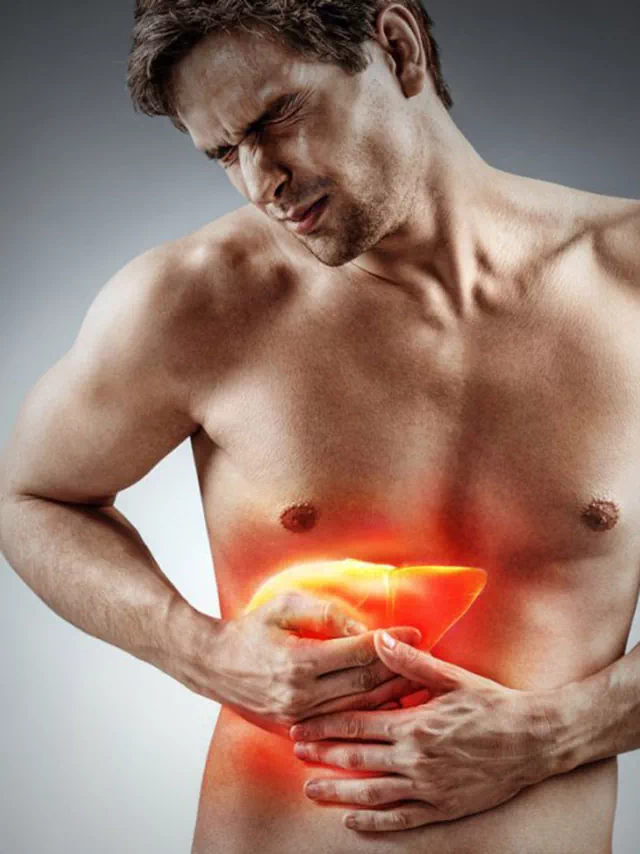Overall, it’s important to have a balanced diet that includes a variety of fruits, vegetables, whole grains, lean proteins, and healthy fats in order to support liver function. Consult with a doctor or dietitian to determine which foods are best for you and in what quantity.
Good food for liver health
- Leafy green vegetables: These are high in antioxidants and vitamins that can help support the liver’s detoxification processes.
- Cruciferous vegetables: Vegetables such as broccoli, cauliflower, and Brussels sprouts contain compounds that can help protect the liver from damage.
- Berries: Berries are high in antioxidants, which can help neutralize free radicals and protect the liver from damage.
- Whole grains: Whole grains such as oats and barley contain fibers and nutrients that can help support the liver’s detoxification processes.
- Olive oil: Extra-virgin olive oil is high in monounsaturated fats, which can help protect the liver from damage.
- Garlic and Onions: Both contain compounds that have been shown to have protective effects on liver health.
- Avocado : Rich in healthy fats, fibers and various vitamins and minerals.
- Lemons and limes : High in vitamin C and antioxidants, and helps to alkalize the body.
- Nuts and seeds: These are high in healthy fats and antioxidants, which can help protect the liver from damage. Examples include almonds, walnuts, chia seeds, and flax seeds.
- Turmeric: This spice is high in curcumin, which has anti-inflammatory and antioxidant properties and has been shown to protect the liver from damage.
- Green tea: Green tea is high in antioxidants, which can help protect the liver from damage and promote detoxificationHerbs and spices: Many herbs and spices have medicinal properties that can benefit the liver. Examples include milk thistle, dandelion, and ginger.
- Fish: Fish such as salmon and sardines are rich in omega-3 fatty acids, which have anti-inflammatory properties and can help protect the liver from damage.
- Eggs: Eggs are rich in protein and choline, a nutrient that plays a key role in liver function.

A healthy diet includes a variety of nutrient-dense foods from different food groups, including:
- Fruits and vegetables: These are high in vitamins, minerals, antioxidants, and other beneficial compounds that can help support overall health.
- Whole grains: Whole grains such as oats, quinoa, and brown rice are rich in fiber, B vitamins, and other important nutrients that support heart health, digestion and energy.
- Lean proteins: Lean proteins, such as fish, chicken, turkey, and legumes, are essential for building and repairing tissues, and they also help to balance hormones and regulate blood sugar levels.
- Healthy fats: Healthy fats, such as olive oil, avocado, nuts, and seeds, are important for maintaining heart health, brain function, and energy levels.
- Fermented foods: Foods that have been fermented, such as yogurt, kimchi, sauerkraut, and kombucha, can help support gut health by promoting the growth of beneficial bacteria.
Here are a few more examples of nutrient-dense foods that are good for the body
- Leafy greens: Spinach, kale, collard greens, and other leafy greens are high in vitamins and minerals like Vitamin K, Vitamin A, Vitamin C, and iron which support healthy bones, eyes and skin.
- Berries: Berries like blueberries, raspberries, and blackberries are high in antioxidants and phytonutrients, and are linked to better heart health and lower inflammation.
- Seafood: Oysters, mussels, sardines, and other types of seafood are high in omega-3 fatty acids, which are essential for maintaining heart health, brain function, and mental health.
- Nuts and seeds: Nuts and seeds like almonds, walnuts, flax seeds, and chia seeds are high in healthy fats, protein, and fiber, and can help lower cholesterol, improve blood sugar control, and reduce inflammation.
- Eggs: Eggs are a good source of high-quality protein, vitamins, and minerals, particularly choline which is essential for brain health and liver function



